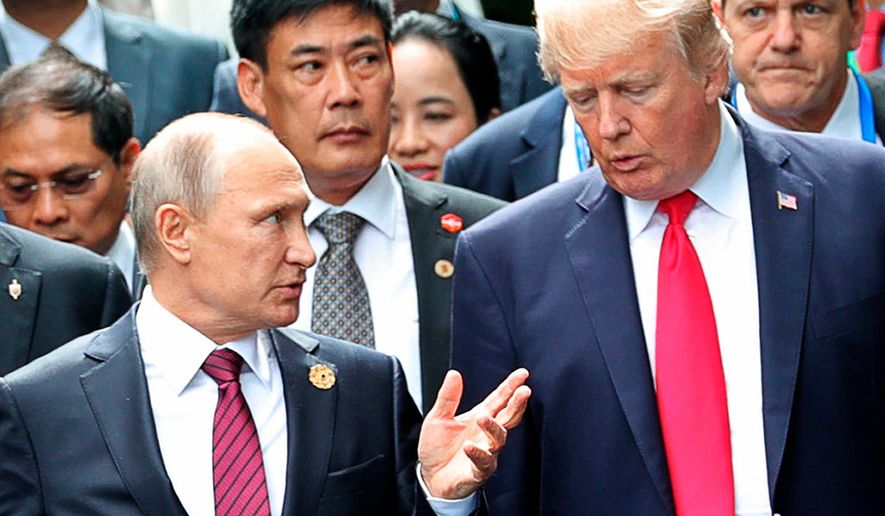Breaking with the House, the Senate Select Committee on Intelligence on Wednesday endorsed a U.S. intelligence finding that Russia secretly tried to interfere with the 2016 election to boost Donald Trump and hurt Hillary Clinton, calling the accusations of Russian meddling “accurate and on point.”
Leaders of the Senate Intelligence Committee revealed their conclusion after a closed-door hearing on the issue with the top Obama administration officials who authorized the intelligence consensus report that was publicly released just two weeks before Mr. Trump took office in January 2017.
But the Senate panel, which avoided many of the partisan fights that plagued the House Intelligence Committee’s probe, said it was still exploring the question of whether there was collusion between the Trump campaign and the Russians, and many GOP lawmakers said they has seen no evidence of Mr. Trump’s personal involvement. The panel earlier this month said it had found no proof the Russians had swayed the elections or managed to change vote counts.
Still, the panel’s finding did undercut an effort by some Republicans to portray the entire Russian-meddling narrative as an invention pushed by the Obama administration and the Hillary Clinton campaign to smear Mr. Trump and his closest advisers in the heat of a tightening presidential campaign.
“Committee staff have spent 14 months reviewing the sources, tradecraft, and analytic work, and we see no reason to dispute the conclusions,” committee Chairman Richard Burr, Republican North Carolina, said in a statement. “There is no doubt that Russia undertook an unprecedented effort to interfere with our 2016 elections.”
The January 2017 intelligence consensus report was considered significant because never before had the CIA, National Security Agency and FBI — the assessment’s joint authors — asserted that a foreign government interfered so extensively in a U.S. election to help one candidate and discredit another.
Ever since its release, Mr. Trump has dismissed the 15-page report’s findings and pointed to it as evidence that “an American deep state” consisting of establishment Washington figures and agencies — has conspired to undermine his presidency with a series of politically motivated “witch hunt.”
Russian officials have also repeatedly denied any meddling in the 2016 election, which U.S. officials say included cyber operations, the planting of false news stories and the use of social media “trolls” orchestrated by the Kremlin.
Wednesday’s closed-door hearing included Director of National Intelligence James Clapper, former CIA Director John Brennan and former National Security Administration Director Admiral Mike Rogers. Former FBI Director James B. Comey, whom Mr. Trump fired last May, declined the probe’s invitation to testify, according to an unnamed committee aide.
“Despite the short time frame they had to prepare it, the intelligence community did a very good job with the [Intelligence Community Assessment],” said Virginia Sen. Mark Warner, the ranking Democrat on the intelligence panel. “After a thorough review, our staff concluded that the ICA conclusions were accurate and on point.”
Mr. Warner added: “The Russian effort was extensive, sophisticated, and ordered by President Putin himself for the purpose of helping Donald Trump and hurting Hillary Clinton.”
Last month, a 250-page House Intelligence Committee report issued by the majority found no collusion between Russia and the Mr. Trump’s campaign.
The head of that investigation, Rep. Mike Conaway, Texas Republican, also emphasized that the yearlong House probe failed to find clear evidence that Mr. Putin “developed a clear preference” for Mr. Trump over Mrs. Clinton.
Last week, Mr. Burr said the Senate side probe planned to “wrap up” their work by the end of this summer.
• Dan Boylan can be reached at dboylan@washingtontimes.com.




Please read our comment policy before commenting.